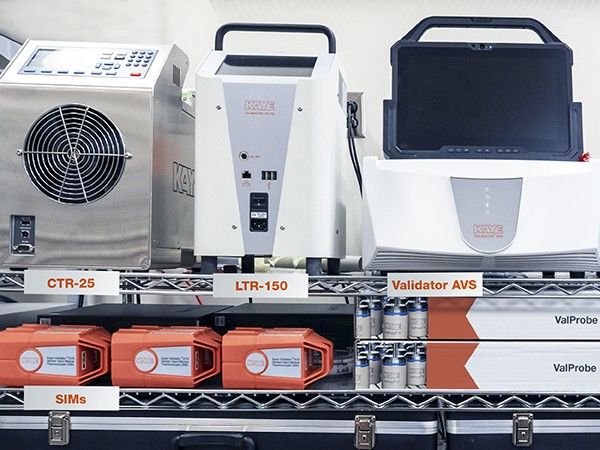In today’s fast-paced and highly regulated world, the importance of validation equipment cannot be overstated. This article delves into what validation equipment is, its significance, and how it plays a crucial role across various industries. We’ll also explore different types of validation equipment and their applications, ensuring a comprehensive understanding of this critical topic.
What is Validation Equipment?
Validation equipment refers to a broad range of tools and devices used to confirm that systems, processes, and products meet specified standards and requirements. This equipment is essential in industries where precision, safety, and compliance are paramount. By using validation equipment, companies can ensure that their operations are efficient, reliable, and in accordance with regulatory guidelines.
Importance of Validation Equipment
Validation equipment is vital for several reasons:
- Compliance with Regulations: Many industries, such as pharmaceuticals, food and beverage, and aerospace, are subject to stringent regulations. Validation equipment helps these industries meet the required standards set by regulatory bodies like the FDA, ISO, and others.
- Ensuring Quality: Validation equipment ensures that products meet the necessary quality standards. This is crucial in industries where product failure can have severe consequences.
- Efficiency and Cost Savings: By validating processes and equipment, companies can avoid costly recalls, rework, and legal issues. It also helps in optimizing processes, leading to better efficiency and reduced waste.
- Customer Trust: Consistently delivering high-quality products builds customer trust and brand reputation. Validation equipment plays a key role in maintaining these high standards.
Types of Validation Equipment
There are various types of validation equipment, each serving a specific purpose. Here are some of the most common:
1. Temperature Validation Equipment
Temperature validation equipment is crucial in industries where temperature control is essential. For example, in the pharmaceutical industry, maintaining the correct temperature during the production and storage of drugs is vital. Temperature validation equipment includes data loggers, thermocouples, and thermal imaging cameras.
2. Pressure Validation Equipment
Pressure validation equipment is used to ensure that systems operate within safe and efficient pressure ranges. This type of equipment is commonly used in industries such as oil and gas, chemical processing, and manufacturing. Examples include pressure transducers, manometers, and pressure gauges.
3. Flow Validation Equipment
Flow validation equipment measures and validates the flow rate of liquids and gases. This is particularly important in water treatment plants, chemical factories, and HVAC systems. Flow meters, anemometers, and ultrasonic flow sensors are examples of flow validation equipment.
4. Electrical Validation Equipment
Electrical validation equipment is used to verify that electrical systems and components meet safety and performance standards. Industries such as electronics, automotive, and aerospace rely heavily on this type of validation. Multimeters, oscilloscopes, and insulation testers are common electrical validation tools.
5. Humidity Validation Equipment
Humidity control is critical in environments where moisture levels can impact product quality and safety. Industries such as food processing, pharmaceuticals, and electronics use humidity validation equipment like hygrometers, humidity data loggers, and dew point meters.
Applications of Validation Equipment
Validation equipment finds applications across a multitude of industries. Let’s explore some key sectors where validation equipment is indispensable.
1. Pharmaceutical Industry
In the pharmaceutical industry, validation equipment is used to ensure that drugs are produced in a controlled and compliant environment. Temperature, pressure, and humidity validation are crucial in this sector to maintain drug efficacy and safety. Equipment such as autoclaves and environmental monitoring systems are widely used.
2. Food and Beverage Industry
The food and beverage industry relies on validation equipment to ensure products are safe for consumption. Temperature and humidity control are vital to prevent spoilage and contamination. Validation tools like thermal cyclers and moisture analyzers help maintain product quality and safety.
3. Manufacturing Industry
In manufacturing, validation equipment is used to ensure that machinery and processes operate efficiently and within specified parameters. This helps in reducing downtime, improving product quality, and ensuring worker safety. Pressure gauges, flow meters, and electrical testers are commonly used validation tools in this industry.
4. Aerospace Industry
The aerospace industry has stringent safety and performance standards. Validation equipment is essential to ensure that all components and systems meet these standards. Electrical validation equipment, pressure transducers, and thermal imaging cameras are crucial in this sector.
Choosing the Right Validation Equipment
Selecting the appropriate validation equipment is crucial for achieving accurate and reliable results. Here are some factors to consider:
- Industry Requirements: Different industries have unique validation needs. It’s important to choose equipment that meets the specific requirements of your industry.
- Accuracy and Precision: The accuracy and precision of validation equipment are critical. Ensure that the equipment you select can provide the necessary level of detail and reliability.
- Ease of Use: Validation equipment should be user-friendly and easy to integrate into existing processes. Complex equipment can lead to errors and inefficiencies.
- Compliance Standards: Ensure that the validation equipment complies with relevant industry standards and regulations. This is essential for maintaining regulatory compliance and avoiding legal issues.
- Cost and ROI: Consider the cost of the equipment and the return on investment. While high-quality validation equipment may come with a higher price tag, it often results in long-term savings through improved efficiency and reduced waste.
Conclusion
Validation equipment plays a pivotal role in ensuring that processes, systems, and products meet the required standards and specifications. From maintaining regulatory compliance to ensuring product quality and safety, the importance of validation equipment cannot be overstated. By understanding the different types of validation equipment and their applications, businesses can make informed decisions and choose the right tools for their needs.
Investing in high-quality validation equipment not only helps in achieving compliance and quality standards but also enhances efficiency and customer trust. As industries continue to evolve and regulations become more stringent, the role of validation equipment will only grow in significance. Therefore, staying informed and up-to-date with the latest validation technologies is essential for any industry aiming for excellence and reliability.
